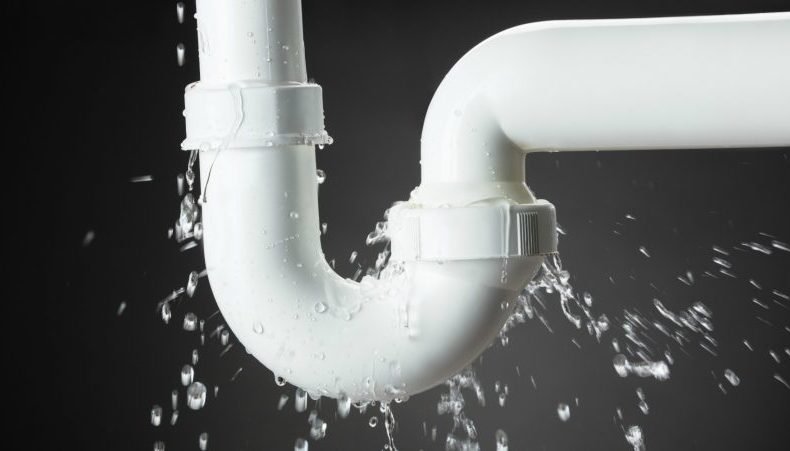
Emergency plumbers are there for you when your plumbing breaks at the worst possible times. However, these situations will happen to every homeowner eventually, and it’s best to know some basic knowledge about how to resolve plumbing emergencies on your own before contacting emergency help.
Unfortunately, the majority of home-related emergencies are related to problems with the bathroom or kitchen, both of which contain water; this makes them particularly vulnerable to serious damage. Unsurprisingly, more than half of all emergency service calls involve some sort of clogged drain or burst pipe in one of these two rooms.
Fortunately, unclogging drains is actually a pretty simple process that most homeowners can do themselves. It may seem intimidating at first glance – after all, what if you make the problem worse? – but it’s actually a lot easier than most people think. The trick is to know how to resolve plumbing emergencies before they happen, thus avoiding serious damage and correcting the issue efficiently.
Calling in a professional like Jeffery Handyman is well worth the cost in many cases, but when it comes to draining systems it’s much better to save yourself the money and try fixing it yourself first. It might take you longer than an emergency plumber would, but it will definitely be cheaper!
Toilet Clogs
This is probably one of the most common issues that homeowners have to face in bathrooms, due to kids flushing things down the toilet that they shouldn’t or using too much toilet paper. The latter especially can cause major clogging issues in homes with older plumbing; newer pipes are usually designed with excess water flow in mind and won’t get stopped up as easily (though even these pipes can become stopped up if enough material gets piled into them).
To resolve a toilet clog yourself, you first need to find and remove the culprit: whether it be too much paper or some other item. Once you’ve got this out of the way, pour a pot of boiling water down the toilet to help melt away anything that’s still caught up in there. If possible, try using a plunger to force more water through the pipes; if it doesn’t work, try pouring more boiling water down. After repeating these steps about three times, your problem should finally be resolved.
Kitchen Drain Clogs
Kitchen drains can easily become clogged as well – especially if your disposal is broken. Unfortunately, unlike toilets kitchen sinks have very few warning signs before they become completely plugged up… And usually by the time you realize there’s a problem it’s already too late.
The best way to resolve these issues is with a professional plumber, though if you’ve got an especially bad clog and don’t want to wait for emergency help you can try using a plunger or even some basic drain cleaner (if your pipes are metal). Just like in the bathroom/toilet, pour boiling water down the sink after trying any other methods of unclogging. This should help melt away anything that was causing problems; at least enough that professionals will be able to remove it completely without much hassle.
The first tip for resolving plumbing emergencies is simple: know where your main water shut-off valve is located. That way, if you do find yourself in a situation with no running water and an overflowing drain, you can cut off the water quickly and minimize damage.
Secondly, if the emergency involves a clogged drain or any other stoppage of moving fluid such as air or gas (as opposed to standing water), you should try to clear it yourself using baking soda and vinegar . While this isn’t guaranteed to work, there’s a surprising amount of evidence that suggests you’ll solve the problem in most cases. All you need to do is pour half a cup of baking soda down the drain, and follow it with a cup of vinegar, letting the latter sit for at least 30 minutes before flushing with boiling water.
Pouring dish soap down your unclogged drain can also help resolve plumbing emergencies. Soap helps break up greasy substances such as oil and cooking residue, which cause clogs when they congeal in your pipes over time.
As you might expect for any job involving water or electricity, safety should be your number one priority when resolving plumbing emergencies . Not only should you wait until after turning off all power to begin working on a clogged drain, but you shouldn’t try to clear a drain if flushing it with boiling water isn’t working. This means using your nose and ears as well as eyes: if you can smell gas, or hear that the hissing sound has changed pitch, leave immediately and then call emergency plumbing help.
While unclogging drains yourself may seem like an intimidating prospect at first glance, most homeowners can easily resolve these issues without any serious difficulty. Follow the tips above as soon as you realize there’s a problem , and remember that even if you do make matters worse, emergency plumbers should be able to rectify the situation quickly and cheaply for you!






